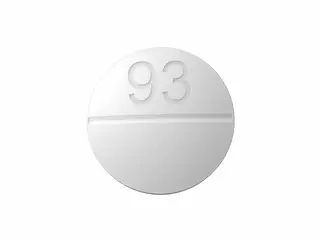Gastrointestinal Health
Discover a wide range of effective supplements and medications designed to support digestive comfort, improve gut health, and relieve common gastrointestinal issues. Shop trusted brands to promote a balanced digestive system and overall wellness.
Gastrointestinal health is essential for overall well-being. Many people suffer from stomach discomfort, acid reflux, indigestion, and bowel irregularities. Fortunately, there are several effective medications available online to help manage these conditions. This review covers popular drugs in the gastrointestinal health category that target symptoms like acid reflux, irritable bowel syndrome, diarrhea, and gastric motility issues.
Aciphex (rabeprazole) is a proton pump inhibitor (PPI). It reduces stomach acid production. It is mainly used to treat gastroesophageal reflux disease (GERD) and stomach ulcers. Aciphex works by blocking acid secretion, allowing healing of the stomach lining. Patients generally tolerate it well, with few side effects, mostly mild headache or nausea.
Asacol contains mesalamine, an anti-inflammatory agent. It is used for ulcerative colitis, a chronic bowel inflammation. Asacol targets inflammation in the colon to reduce symptoms like pain, diarrhea, and bleeding. It helps maintain remission in patients. Side effects are uncommon but may include abdominal pain or headache.
Colospa (mebeverine) is an antispasmodic medication. It relaxes the muscles of the gut. Colospa is commonly prescribed for irritable bowel syndrome (IBS) and other intestinal cramps. It reduces pain and improves bowel movement regularity. This drug is generally safe, with minor side effects such as dizziness or dry mouth.
Imodium (loperamide) is a fast-acting anti-diarrheal. It slows intestinal movement, allowing more water absorption. This helps reduce loose stools in cases of diarrhea. Imodium is effective for acute diarrhea and IBS-related diarrhea. It should be used carefully and not prolonged without medical advice. Side effects may include constipation or dizziness.
Maxolon (metoclopramide) improves gastric motility. It helps empty the stomach faster. Maxolon is often prescribed for nausea, vomiting, and gastroparesis. It acts by stimulating stomach muscles and blocking dopamine receptors involved in nausea. Common side effects include fatigue and restlessness. Long-term use should be avoided due to possible movement disorders.
Motilium (domperidone) also enhances gastrointestinal motility. It relieves symptoms of bloating, nausea, and indigestion. Unlike Maxolon, Motilium has fewer central nervous system side effects because it does not cross the blood-brain barrier easily. However, it must be used under medical supervision due to potential heart-related issues.
Nexium (esomeprazole) is another popular proton pump inhibitor. It treats GERD, stomach ulcers, and Zollinger-Ellison syndrome. Nexium provides effective and sustained acid suppression, allowing healing and symptom relief. Side effects are generally mild, such as headache or abdominal pain. Long-term use may require monitoring for nutrient absorption issues.
Pentasa contains mesalamine, similar to Asacol. It treats inflammatory bowel diseases like Crohn’s disease and ulcerative colitis. Pentasa releases mesalamine throughout the intestine to reduce inflammation. It aids in maintaining remission and reducing flare-ups. Side effects are typically mild, involving upset stomach or headache.
Pepcid (famotidine) is an H2 receptor antagonist. It decreases stomach acid but is less potent than PPIs. Pepcid treats heartburn, GERD, and ulcers. It works faster but may not provide as long-lasting acid suppression as PPIs. Side effects are uncommon but can include headache or dizziness.
Prevacid (lansoprazole) is another PPI. It reduces acid secretion and treats GERD, erosive esophagitis, and ulcers. Prevacid is effective and usually well tolerated. Common side effects include diarrhea or abdominal pain. It offers once-daily dosing, which improves patient compliance.
Prilosec (omeprazole) was one of the first widely used PPIs. It suppresses acid production and treats GERD and ulcers. Prilosec is available both over-the-counter and by prescription. Patients may experience mild side effects like headache or nausea. Long-term use requires monitoring due to risks of bone fractures or infections.
Protonix (pantoprazole) is a PPI that inhibits acid production. It is used in GERD, Zollinger-Ellison syndrome, and stomach ulcers. Protonix has a good safety profile and is well tolerated. Side effects include headache and diarrhea. It is often preferred for patients requiring intravenous treatment.
Reglan (metoclopramide) is similar to Maxolon and improves stomach emptying. It is primarily useful for nausea and gastroparesis. Reglan also enhances lower esophageal sphincter tone, reducing reflux. Side effects include drowsiness and risk of extrapyramidal symptoms with prolonged use.
Xifaxan (rifaximin) is a non-absorbable antibiotic. It is used to treat traveler's diarrhea, irritable bowel syndrome with diarrhea, and hepatic encephalopathy prevention. Xifaxan acts locally in the gut against harmful bacteria. Side effects are usually mild, such as nausea or dizziness. It is a valuable option for bacterial-related gut issues.
In summary, medications in gastrointestinal health target acid reduction, inflammation, motility, and bacterial balance. Proton pump inhibitors like Aciphex, Nexium, Prevacid, Prilosec, and Protonix are cornerstones for acid-related diseases. Mesalamine products such as Asacol and Pentasa manage inflammatory bowel conditions effectively. Antispasmodics and motility agents like Colospa, Maxolon, Motilium, and Reglan improve bowel function and relieve cramps. Imodium offers quick relief for diarrhea, while Xifaxan treats infections.
Choosing the right medication depends on the specific gastrointestinal issue, patient health, and doctor’s advice. Many of these drugs have proven safety and efficacy with proper use. Patients should follow dosing instructions and report any side effects or unusual symptoms to healthcare providers. This ensures the best outcomes for maintaining gastrointestinal health and improving quality of life.












